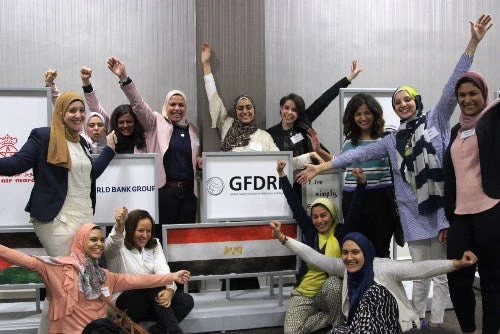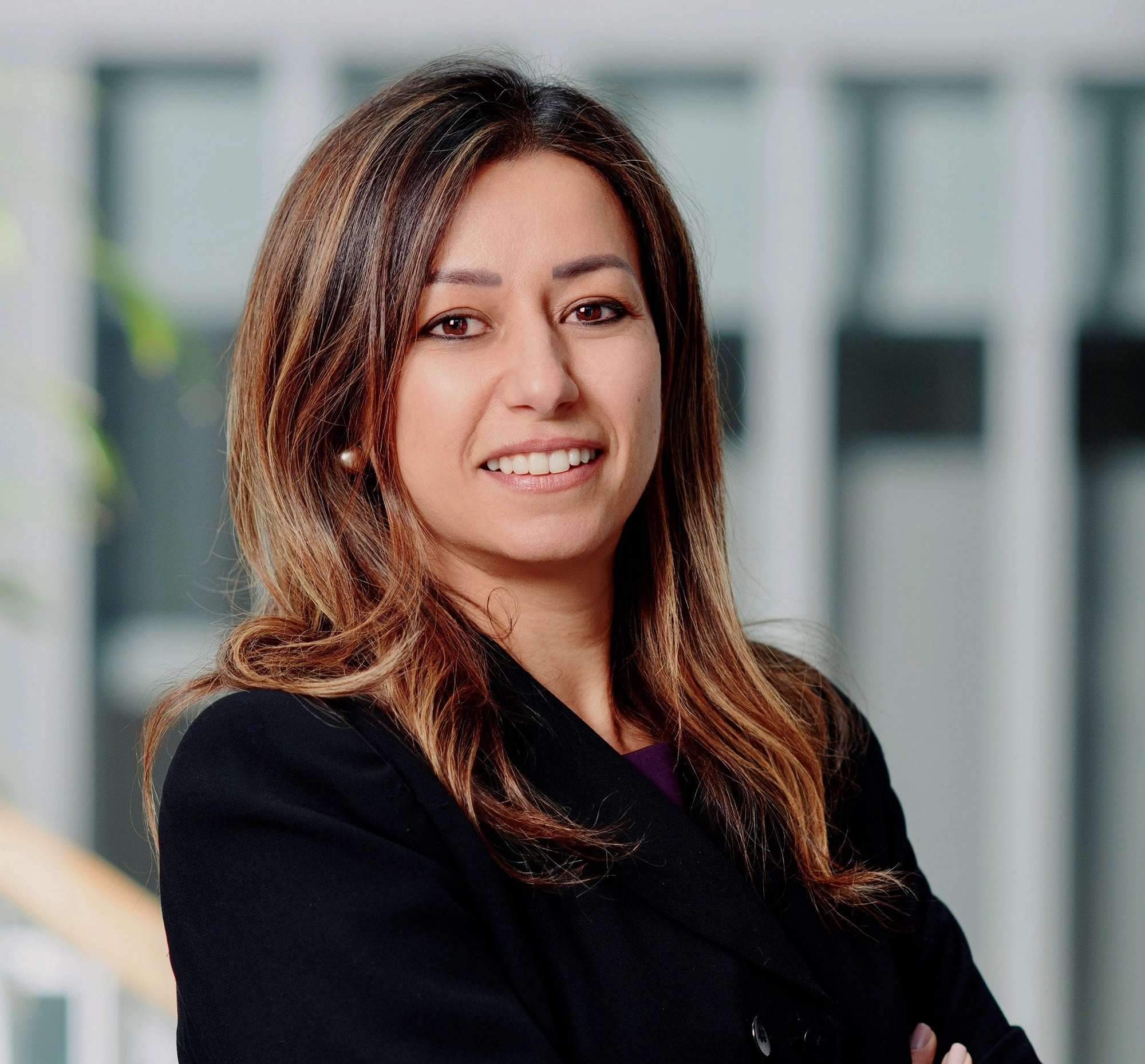 Our continued belief in the enormous resourcefulness, resilience and sheer drive of young Arab women has yet again been reconfirmed. In Cairo, Yara Yassin and Rania Rafie are agents of change. These young women work with local artisans to transform plastic bags into high-quality fashion products sold around the world. In Beirut, Angela Solomon runs a child care service that recruits from underprivileged backgrounds and subsidizes care for refugee children. From Tangier, Selma Ben’akcha has founded a company in Casablanca that recycles palm waste to combat deforestation. And across the world, Aline Sara is connecting displaced Syrians with Arabic learners for language practice over Skype, offering them an enriching job opportunity. These are some of the 35 innovations celebrated as finalists of WeMENA (Women Entrepreneurs for a Resilient Future), a business model challenge that supports women entrepreneurs across the Middle East and North Africa.
Our continued belief in the enormous resourcefulness, resilience and sheer drive of young Arab women has yet again been reconfirmed. In Cairo, Yara Yassin and Rania Rafie are agents of change. These young women work with local artisans to transform plastic bags into high-quality fashion products sold around the world. In Beirut, Angela Solomon runs a child care service that recruits from underprivileged backgrounds and subsidizes care for refugee children. From Tangier, Selma Ben’akcha has founded a company in Casablanca that recycles palm waste to combat deforestation. And across the world, Aline Sara is connecting displaced Syrians with Arabic learners for language practice over Skype, offering them an enriching job opportunity. These are some of the 35 innovations celebrated as finalists of WeMENA (Women Entrepreneurs for a Resilient Future), a business model challenge that supports women entrepreneurs across the Middle East and North Africa.
Following a highly competitive process featuring almost 2,000 applicants, the WeMENA grand finale was held in Casablanca (Morocco) on April 29 and 30. The event brought together some 200 women entrepreneurs, experts, development partners, and investors from across the region, focusing on 8 cities: Beirut, Byblos, Amman, Ramallah, Cairo, Alexandri, Tunis and Casablanca. A video of the event can be found here.
Supported by the World Bank, under the financing of the Global Facility for Disaster Reduction and Recovery (GFDRR), WeMENA provides networking, training and mentorship, and funding to early-stage companies founded by women in the Middle East and North Africa. It targets innovative business models that enhance their communities’ ability to survive, adapt and grow in the face of stresses and shocks, by investing in challenges ranging from food security to healthcare and civic engagement.
What are some of the key features of this initiative and what does it aim to achieve?
Building resilience. Whether they live in the West Bank, Lebanon, Jordan, Egypt, Tunisia or Morocco, the WeMENA competitors come from countries facing a challenging interaction of man-made and natural hazards, including the largest refugee crisis since World War II. These conditions disproportionately affect women (who have less access and control over assets), and create major strains on the socioeconomic fabric, particularly in urban areas.
Empowering women. Young women like Yara, Rania, Angela, Aline and Selma had to overcome significant obstacles to build their businesses, including limited access to credit, mobility constraints and security concerns. Women in the Middle East and North Africa have lower early-stage entrepreneurial activities than female entrepreneurs in other countries, and at 23% in average, the region’s female labor force participation rate is the lowest in the world.
Promoting entrepreneurship. In most economies, 70% to 85% of disaster risk investments are made by the private sector. Engaging with SMEs is therefore essential to mitigating risk and investing in resilience. This is especially relevant in the Middle East, where young people view unemployment and extremism as the two biggest obstacles facing the region.
As reminded forcefully by President Kim during the last World Bank Group Spring Meetings, “ all agree that one of the most powerful ways to grow the global economy is to expand the role of women in business”. Investing in female entrepreneurs goes a long way and has far-reaching benefits, reaping dividends for families, local and national communities, as well as economies and societies at large. In one of the most fragile regions of the world, WeMENA aims to respond to this imperative and to contribute to building more resilient societies, where growth and prosperity are shared by all.
With the cash prizes earned as contest winners, Yara, Rania, Angela, Aline and Selma can invest in the sustainability and scaling up of their business models, strengthening their communities by creating jobs, services, and inspiration. And by relying on the network of women entrepreneurs established across the region, the 200 WeMENA finalists can build connections with investors and continue promoting women’s entrepreneurship in urban resilience. Going forward, WeMENA hopes to partner with many more women, supporting them as they build a sustainable future - one where the opportunities outweigh the risks.



Join the Conversation